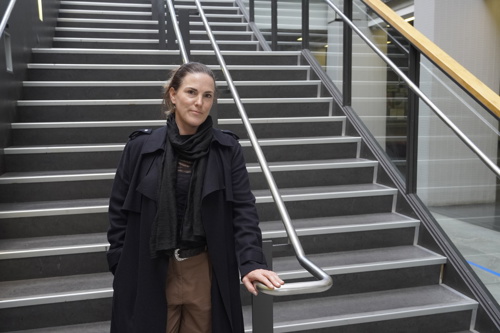Unique genetic variant and mechanism drives powerful Type 2 diabetes protection
New light is shining on the role of genetics in the etiology and management of obesity and diabetes in New Zealand populations with MWC support through the Metabolic Disease Flagship project.

Dr Kate Lee.
The explosion of research on genetic factors driving health and disease is a key driver in the development of precision medicine strategies. Initially this research focussed on Europe and the US, but more recently large-scale studies have also been undertaken in Africa and Asia. However, Māori and Pacific peoples are not included in those studies so run the risk of missing out on advances in precision medicine and creating new health inequities as precision medicine becomes embedded in the future. Now, under MWC’s Metabolic Health Flagship programme ‘Phenotyping and gene functional studies’ has made new discoveries of the impact of a genetic variant in the CREBRF gene that is only found in Māori and Pacific people. This provides the MWC’s first major contribution to the development of personalised healthcare for these peoples.
The MWC has supported a study with New Zealand Māori and Pacific participants across multiple sites, including Māori research organisations, that matched genotypes with a wide range of metabolic phenotypes. The initial focus was on the CREBRF gene variant as this is found in 30 percent of Māori and Pacific people. In these studies the CREBRF gene variant was associated with a large increase in body mass index (BMI) which would normally suggest an increase in unhealthy levels of body fat.
A large team of MWC researchers have been investigating this by combining a range of studies in mouse models with the phenotyping studies in humans. Results of the two studies have been published in the high impact journal Molecular Metabolism1. MWC Associate Investigator Dr Kate Lee lead author of the paper says despite having high BMI, men who are carriers of the CREBRF allele show better glucose metabolism and healthier body composition than those who do not carry the variant and these could be ways in which this variant gives some protection against diabetes.
Dr Lee says “Surprisingly they have lower body fat and higher lean muscle compared with non-carriers, particularly as they age. This is a more metabolically healthy body composition. The study uncovered a potential mechanism for these effects “Uniquely, we found serum myostatin was lower in human male carriers.” Myostatin regulates skeletal muscle growth and limits gain in muscle mass.
Dr Lee says “The MWC provides a unique way to support this work through its structures to enable this type of complex research by facilitating collaboration across a large, multidisciplinary team with expertise in different organ systems and experimental techniques, early career and mid-career researchers, Māori and Pacific scientists, community partners and clinical associates.”
There are ongoing MWC supported studies into the CREBRF variant and how it might impact the actions of important medicines. The flagship is now moving on to study other genetic drivers of metabolic disease in Māori and Pacific with a focus on several shortlisted gene variants which have the potential to impact healthcare. Through this the MWC is making important initial steps to ensure that Māori and Pacific peoples benefit from the new wave of precision medicine.